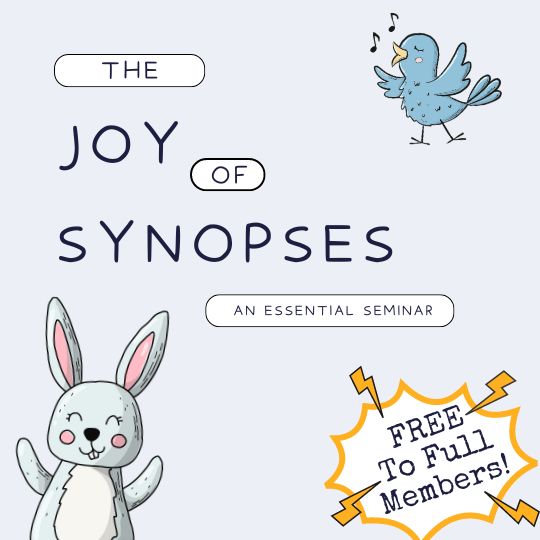Paul Whybrow
Full Member
There's a difference between fear and dread—it's subtle—but, as writers, we should use dread to create an atmosphere of unease...a pervasive foreshadowing that coats our characters.
To me, dread implies fearful expectation or anticipation, whereas fear is a response to a threat that's appeared.
These days, in Thriller and Crime writing and film adaptations, there's too much instant gratification—BOOM!—big explosions, courtesy of CGI that the hero is immune to, calmly walking away from them, as if shock waves, heat and debris don't exist. If our hero is injured, it's usually a designer cut on his cheek, that won't leave a scar. No one ever receives a wound that makes them weak and insecure and vulnerable...which could crank up the tension, rather than detract from their powers.
I've just finished reading Michelle Paver's Wakenhyrst, in which she creates a cumulative sense of dread from seemingly unconnected incidents, skilfully using all of the senses, including smell and touch. Nice to come across a hardback book so well-designed with the use of colophons depicting reeds, ivy leaves, a magpie, carved devil heads, bulrushes and leafy vegetation to mark chapter and section breaks. I was delighted to see an eel slither onto the corner of page 165 out to make mischief. Good too, that there's a red ribbon bookmark attached to the spine. Such features make a book feel special, that it's worth the asking price. Michelle Paver is represented by our own @AgentPete.

The dread-full atmosphere of Wakenhyrst put me in mind of the Fantasy and Ghost stories penned by M.R. James in which he created a creepy atmosphere, where nothing was quite what it seemed to be, leading to a satisfying crescendo.
Several of these tales were adapted by the BBC, in a strand of short films under the banner A Ghost Story For Christmas. Shown from 1971-1978, with a one-off in 2005, they were eagerly anticipated by viewers and much-discussed afterwards.
A Ghost Story for Christmas - Wikipedia
I vividly recall several scenes, including one from the first shown The Stalls of Barchester, based on M.R. James' story The Stalls of Barchester Cathedral, in which a scholar is haunted by a ghostly cat, as he investigates the mysterious death of his predecessor. What made me jump, was a scene where the doomed protagonist is sitting in the darkened cathedral, with only a candle for illumination, nervous of an unseen cat yowling nearby, grasping the arm of his chair for reassurance—which suddenly turns from wood into black cat fur!
The whole film is available on YouTube.
In my own writing, I try to create a sense of dread in my Cornish Detective series, sometimes by letting the reader know things that the coppers don't, meaning they blunder into dangerous situations. Judging how well I've made the reader uneasy, is as tricky as deciding how funny a listener will find a joke I'm telling.
Books I've enjoyed for the way that the author instils apprehension, include William Peter Blatty's The Exorcist, Susan Hill's The Woman In Black and Cormac McCarthy's No Country For Old Men.

How about you?
Are your stories tinged with dread?
Which authors make you afraid to turn the page?

Illustration by James McBryde for M. R. James's story 'Oh, Whistle, and I'll Come to You, My Lad'
To me, dread implies fearful expectation or anticipation, whereas fear is a response to a threat that's appeared.
These days, in Thriller and Crime writing and film adaptations, there's too much instant gratification—BOOM!—big explosions, courtesy of CGI that the hero is immune to, calmly walking away from them, as if shock waves, heat and debris don't exist. If our hero is injured, it's usually a designer cut on his cheek, that won't leave a scar. No one ever receives a wound that makes them weak and insecure and vulnerable...which could crank up the tension, rather than detract from their powers.
I've just finished reading Michelle Paver's Wakenhyrst, in which she creates a cumulative sense of dread from seemingly unconnected incidents, skilfully using all of the senses, including smell and touch. Nice to come across a hardback book so well-designed with the use of colophons depicting reeds, ivy leaves, a magpie, carved devil heads, bulrushes and leafy vegetation to mark chapter and section breaks. I was delighted to see an eel slither onto the corner of page 165 out to make mischief. Good too, that there's a red ribbon bookmark attached to the spine. Such features make a book feel special, that it's worth the asking price. Michelle Paver is represented by our own @AgentPete.

The dread-full atmosphere of Wakenhyrst put me in mind of the Fantasy and Ghost stories penned by M.R. James in which he created a creepy atmosphere, where nothing was quite what it seemed to be, leading to a satisfying crescendo.
Several of these tales were adapted by the BBC, in a strand of short films under the banner A Ghost Story For Christmas. Shown from 1971-1978, with a one-off in 2005, they were eagerly anticipated by viewers and much-discussed afterwards.
A Ghost Story for Christmas - Wikipedia
I vividly recall several scenes, including one from the first shown The Stalls of Barchester, based on M.R. James' story The Stalls of Barchester Cathedral, in which a scholar is haunted by a ghostly cat, as he investigates the mysterious death of his predecessor. What made me jump, was a scene where the doomed protagonist is sitting in the darkened cathedral, with only a candle for illumination, nervous of an unseen cat yowling nearby, grasping the arm of his chair for reassurance—which suddenly turns from wood into black cat fur!
The whole film is available on YouTube.
In my own writing, I try to create a sense of dread in my Cornish Detective series, sometimes by letting the reader know things that the coppers don't, meaning they blunder into dangerous situations. Judging how well I've made the reader uneasy, is as tricky as deciding how funny a listener will find a joke I'm telling.
Books I've enjoyed for the way that the author instils apprehension, include William Peter Blatty's The Exorcist, Susan Hill's The Woman In Black and Cormac McCarthy's No Country For Old Men.

How about you?
Are your stories tinged with dread?
Which authors make you afraid to turn the page?

Illustration by James McBryde for M. R. James's story 'Oh, Whistle, and I'll Come to You, My Lad'




